
Cannabis microdosing could revolutionize arthritis treatment. A 2023 study shows that cannabis reduces inflammation and relieves pain in arthritis patients and may even help slow disease progression and alleviate symptoms.
Small amounts of THC and CBD offer consistent therapeutic benefits without the unpredictable effects of higher doses, which is exactly what those struggling with arthritis need.
Our collection of Delta 9 edibles provides reliable, gentle relief, so you can manage arthritis symptoms with peace of mind and enjoy a better quality of life every day.
About arthritis
Arthritis is a broad term for over 100 different conditions that affect joints and surrounding tissues. The two most prevalent forms are osteoarthritis and rheumatoid arthritis.
- Osteoarthritis is a degenerative condition where the cartilage cushioning the joints gradually wears away. This causes friction as bones rub against each other. The friction produces pain, stiffness, and reduced joint function, typically in weight-bearing joints such as knees and hips.
- Rheumatoid arthritis is an autoimmune disease in which the body attacks its joint linings. This condition causes inflammation and damage. It often affects small joints on both sides of the body and can harm other organs. Patients experience alternating periods of symptom intensity, with flare-ups followed by times of reduced disease activity.
Other less common types of arthritis include psoriatic arthritis and gout.
Arthritis risk increases with age, especially after year 50, but it can affect people of all ages, including children. Women are more prone to some types of arthritis than men. People with arthritis often experience comorbidities such as cardiovascular disease, diabetes, and depression, which complicate treatment and impact overall health outcomes.
Symptoms of arthritis
The typical symptoms of arthritis include:
- Joint pain
- Stiffness, especially in the morning or after inactivity
- Swelling in affected joints
- Redness and warmth around joints
- Reduced range of motion
- Joint tenderness when touched
- Weakness in muscles surrounding joints
- Joint instability or buckling
- Fatigue
- Joint deformity in advanced stages
What are the causes of arthritis?
Arthritis stems from a complex interplay of factors that damage joints and trigger inflammation. Here are some primary causes of arthritis:
- Age: As we get older, the risk of developing osteoarthritis increases because of wear and tear on joints over time. By age 65, most people have some degree of osteoarthritis visible on X-rays, even if they don't experience symptoms.
- Genetics: Certain genes make people more susceptible to environmental factors that may trigger arthritis. For example, specific human leukocyte antigen (HLA) genes are associated with a higher risk of rheumatoid arthritis.
- Injury: A joint damaged by an injury is more likely to develop arthritis later. This can be a sports injury, accident, or repetitive stress on the joints.
- Infection: Some types of arthritis develop from joint-infecting bacteria, viruses, or fungi. Lyme disease and certain foodborne infections can lead to reactive arthritis.
- Autoimmune disorders: In conditions such as rheumatoid arthritis, the body's immune system attacks healthy joint tissue. This causes inflammation and joint damage over time.
- Obesity: Excess weight puts additional stress on weight-bearing joints, which increases the risk of osteoarthritis. Fat tissue produces proteins that cause harmful inflammation in and around joints.
Traditional arthritis treatments involve pain medications, anti-inflammatory drugs, and in severe cases, surgery, but long-term use of these medications leads to side effects, such as gastrointestinal issues, increased risk of heart problems, and potential dependency.
Microdosed cannabis is emerging as a holistic and safer alternative that offers pain and inflammation relief without harsh side effects.
Cannabis microdoses ease arthritic pain
Small doses of THC and CBD reduce pain associated with arthritis. Delta 9 THC alleviates pain by interacting with the body's endocannabinoid system (ECS). The endocannabinoid system is a complex cell-signaling network that regulates pain sensation, mood, appetite, and immune response, among other things. THC binds primarily to CB1 endocannabinoid receptors in the central nervous system to modulate pain perception and reduce pain signals.
In arthritis, THC targets CB2 receptors in immune cells and joint tissue to decrease inflammation and nociceptive pain associated with joint degradation. Researchers found that THC supplementation boosts the body's natural anti-inflammatory response because arthritic joints already produce elevated cannabinoids to fight inflammation and pain.
CBD reduces inflammation that causes pain. A 2022 study posits that cannabidiol “has anti-inflammatory, antinociceptive, and antioxidant effects, making it an intriguing target for the treatment of pain and inflammatory conditions, including the numerous manifestations of arthritis…”
Small amounts of cannabis reduce joint swelling
A 2024 article published in Pharmaceuticals Journal posits that cannabis reduces joint swelling in arthritic rats through multiple mechanisms. One of those is through the anti-inflammatory action of cannabis terpenes such as caryophyllene and humulene. These aromatic compounds work together to decrease inflammatory cytokines and soothe inflammation in the joints.
Lowin, et. al. explain that CBD reduces joint inflammation by targeting and eliminating overactive synovial fibroblasts, the cells responsible for joint destruction in rheumatoid arthritis. It activates TRPA1 channels and targets mitochondria in these inflammatory cells, which reduces their production of inflammatory proteins.
For the full benefits of cannabis terpenes, choose the richer terpene profiles of hybrid edibles. Try our Euphoria gummies with 10 mg each of THC and CBD for a balanced, uplifting experience.
“Great product! Nice relaxation after a long day.”
Microdosing alleviates anxiety in arthritis patients
People with arthritis often experience anxiety and depression from chronic pain, reduced mobility, and the stress of managing a debilitating condition that impacts daily life. Scientific evidence shows that medical cannabis can provide pain relief and mood improvement for many patients who deal with chronic medical conditions, including arthritis.
THC and CBD work together through the endocannabinoid system to decrease nociception (pain perception) and reduce anxiety, with CB1 receptors in the brain modulating emotional processing while inhibiting excessive neuronal excitation to maintain emotional homeostasis.
Cannabis microdoses improve sleep quality in arthritic patients
Arthritis patients often struggle with sleep from chronic pain, inflammation, and anxiety. Lack of sleep creates a vicious cycle that worsens their physical and mental health. Small, measured doses of cannabis break this cycle by activating CB1 receptors that reduce pain perception and anxiety while promoting natural sleep rhythms.
THC and CBD reduce pain sensitivity and muscle tension, making it easier to find comfortable sleeping positions. These compounds also regulate sleep-wake cycles and reduce anxiety which keeps arthritis patients awake at night. Their anti-inflammatory properties decrease joint swelling that commonly flares up during rest.
With a gentle blend of 25 mg CBD, 2 mg THC, and melatonin, our Sleep Plus gummies help you drift into a natural, restful sleep.
Microdosing consistently relieves arthritis symptoms
Microdosing cannabis offers therapeutic effects without psychoactive effects. This balanced approach to managing rheumatic diseases helps patients maintain steady symptom control while avoiding potential side effects associated with higher doses.
The beneficial effects are cumulative: patients report better symptom management over time while maintaining clear-headedness, which makes cannabis microdoses an effective treatment for those seeking long-term relief from arthritis pain.
Microdosing cannabis targets different types of arthritis pain
Living with arthritis means dealing with different types of pain throughout the day:
- Morning stiffness: restricted movement and joint rigidity upon waking
- Inflammatory pain: burning sensation and swelling in the joints
- Neuropathic pain: sharp, shooting pain from damaged nerve endings
- Mechanical pain: aching and stiffness from joint deterioration
- Activity-related pain: discomfort that increases with movement and use
Cannabis compounds work precisely to address each type of pain. THC binds to CB1 receptors for fast relief from sharp and burning pain, while CBD activates CB2 receptors to reduce joint inflammation.
This dual action lets patients tailor their treatment to specific pain patterns: a morning microdose eases stiffness and swelling, while an evening dose calms the accumulated aches from daily activities. This way, you stay active and functional by managing your arthritis symptoms at the right time, in the right way.
Product QUIZ
Need help deciding what product is best for you? Take our quiz, just three questions until your perfect match!
Lower cannabis doses result in fewer unwanted reactions
Lower doses of cannabis provide therapeutic effects without the unwanted side effects commonly associated with higher doses. When consumed in high amounts (over 10 mg per serving for some people), THC produces mild to moderate psychoactive effects such as:
- Altered perception of time and heightened sensory awareness.
- Reduced cognitive performance, particularly affecting short-term memory and concentration.
- Euphoric mood changes with potential anxiety in some users.
- Dry mouth and increased appetite.
- Physical relaxation and drowsiness that may affect coordination.
Rather than experiencing psychoactive effects that can interfere with daily activities, patients who microdose report achieving effective treatment of their arthritis symptoms while maintaining mental clarity. By keeping doses low, people can get relief from their arthritis pain while staying sharp and focused.
THC-infused beverages are a fun, easy way to enjoy cannabis. Add a dropper or two of our Buzz Drops™ to your favorite non-alcoholic beverage and indulge in a relaxing, balanced experience that lets you control your dose for smooth, manageable relief from arthritis pain.
These liquid THC drops contain only 2.5 mg of THC and CBD each, so you can go as low as you want and keep the experience smooth.
“I love the fact that you can adjust as to how you’re feeling. One dropper or two droppers or three droppers depending on what you need. Very convenient…”
Microdosing carries minimal risk of developing tolerance
Microdosing works long-term for arthritis patients who need daily relief. The body doesn't build tolerance to small, measured doses of cannabis compounds, unlike higher amounts that can require escalating doses over time.
Patients who microdose maintain steady symptom control without developing physical dependence which is a crucial benefit when managing a chronic condition. Small doses keep working consistently month after month, giving people with rheumatic diseases reliable pain relief without the need to increase their intake for the same therapeutic effects.
Begin with tiny amounts to see how your body responds to cannabis. From there, you can slowly dial up the dose until you hit your sweet spot.
What is the best way to microdose cannabis?
Arthritis patients have many options for consuming cannabis: from traditional smoking and vaping to tinctures, oils, and topical creams. But low-dose edibles such as gummies and cannabis-infused drinks are the safest and most reliable choice.
These products provide controlled, measured dosing that helps you manage arthritis symptoms effectively. Choose edibles because they:
- Deliver exact amounts of THC and CBD in each gummy or drink.
- Provide steady relief for 4–6 hours with gradual onset.
- Let you start tiny with 2 mg doses and adjust to your needs.
- Give consistent results every time, unlike smoking.
- Protect your lungs since there's no smoke or vapor.
- Go anywhere discreetly without special equipment.
- Come in pleasant flavors without a harsh cannabis taste.
- Work on a predictable timeline, starting in 30–60 minutes.
Order our low-dose gummies and drinks
Looking for reliable cannabis edibles to manage your arthritis pain? Choose nama™, your trusted source for precisely dosed products for chronic pain relief and inflammation management.
Our full-spectrum edibles deliver consistent, measurable relief through precise microdoses ranging from 2 mg to 10 mg per serving. These amounts let you customize your pain control perfectly. We carefully balance THC and CBD ratios to target pain and inflammation, while our long-lasting formulations provide steady symptom relief throughout your day. Whether you need fast-acting options for morning stiffness or sustained relief for daily activities, nama has you covered.
Our gummies and cannabis-infused beverages are crafted with organic, non-GMO ingredients and are completely free from pesticides, solvents, and harmful additives. Made from premium American hemp, nama products deliver the consistent, reliable relief that arthritis patients need.
Order now, and discover how precise, pure cannabis microdoses can transform your daily pain management.
Microdosing cannabis for arthritis FAQ
What cannabis product is best for arthritis pain?
The best cannabis products for arthritis pain are low-dose edibles such as our gummies and drinks that contain precise amounts of THC, CBD, and other cannabis compounds. Start with 2.5–5mg THC doses to control pain and inflammation without feeling high.
For consistent daily relief, choose products that include beneficial terpenes such as beta-caryophyllene, which specifically targets joint inflammation. Edibles work better than smoking or vaping because they provide longer-lasting effects and let you measure exact doses every time.
Try nama's precisely dosed gummies and drinks crafted specifically for arthritis relief. They combine the perfect ratio of THC, CBD, and anti-inflammatory terpenes to manage your symptoms throughout the day.
Does CBD work for arthritis?
CBD shows significant potential for arthritis management through its anti-inflammatory effects. Research on rheumatoid arthritis synovial fibroblasts demonstrates that CBD reduces inflammation by targeting overactive cells that cause joint destruction.
Unlike THC, CBD doesn't have psychoactive effects, so when combined with small amounts of THC, it makes a great alternative treatment for daily use. It activates CB2 receptors in joint tissue to decrease inflammatory responses and regulate immune function. CBD helps with pain and improves sleep quality, while observational studies show patients report better mobility and reduced stiffness with regular CBD use.
Which cannabis terpenes help with arthritis?
Beta-caryophyllene, myrcene, and humulene are the main terpenes for arthritis relief. These active compounds naturally occur in the cannabis plant and enhance its therapeutic potential. Beta-caryophyllene specifically targets inflammatory pathways while also helping with neuropathic pain. Myrcene has sedating properties that improve sleep quality, while humulene demonstrates significant anti-inflammatory effects. When combined with cannabinoids, these terpenes create an entourage effect that amplifies the benefits of medical cannabis for arthritis symptoms.
Which cannabis product is best for joint pain?
For effective joint pain relief, low-dose cannabis edibles are your best option. These precisely dosed products deliver consistent amounts of THC and CBD directly into your system, targeting both pain and inflammation at their source. Starting with just 2.5–5 mg of THC alongside CBD lets you control joint discomfort without unwanted effects. This balanced approach helps manage both inflammatory arthritis and neuropathic joint pain.
nama's gummies and drinks are formulated with the perfect ratio of THC, CBD, and anti-inflammatory terpenes for joint pain relief. Unlike smoking cannabis or topicals, these edibles provide long-lasting, full-body relief with precise doses you can count on every time.
Is sativa or indica better for arthritis pain?
Rather than focusing on sativa or indica, look for products with specific cannabinoid ratios and terpene profiles proven to help arthritis. Modern medical cannabis products are bred for their therapeutic benefits rather than traditional classifications. What matters most is the balance of THC, CBD, and anti-inflammatory terpenes.
Products with moderate THC levels combined with high CBD content offer analgesic activity while maintaining cognitive performance. Find products that deliver consistent therapeutic effects without unwanted psychoactive effects.
Is cannabis a natural painkiller?
Cannabis acts as a powerful natural painkiller through its interaction with the body's endocannabinoid system. Its active compounds effectively reduce both inflammatory and neuropathic pain. Unlike synthetic cannabinoids or conventional painkillers, medical cannabis works through multiple natural pathways to provide pain relief. It reduces inflammation, modulates pain signals, and helps with associated symptoms like poor sleep quality.
What is the happy effect of cannabis?
Cannabis interacts with cannabinoid receptors in your brain to create feelings of relaxation and wellbeing. Clinical studies show THC triggers the release of dopamine, creating a natural mood lift without the harsh effects of synthetic cannabinoids. When used responsibly, medical marijuana can help reduce anxiety and improve sleep quality. However, the therapeutic potential varies by person; while some experience euphoria, others feel more peaceful and balanced. Smaller amounts typically produce gentle mood enhancement while maintaining mental clarity.
Is cannabis a depressant?
Cannabis is unique because it acts as a depressant and stimulant, depending on dosage and individual response. Its effects aren't as simple as traditional depressants. At low doses, medicinal cannabis can improve focus and mood, while higher doses may have sedating effects. Small amounts of cannabis administered regularly have potential benefits for conditions such as inflammatory arthritis without the severe adverse effects of conventional depressants.
Is cannabis good for the brain?
Research shows cannabis has benefits and risks for brain health. Clinical studies highlight its therapeutic potential for neurological conditions, while some human studies suggest potential protective effects. At therapeutic doses, cannabis helps regulate mood, sleep, and pain perception through natural cannabinoid receptors. However, heavy recreational cannabis use may affect cognitive performance.
Use marijuana responsibly. Medical marijuana in controlled doses can support brain health without significant adverse effects. Modern treatment options focus on precise dosing to maximize benefits while minimizing risks.
What are the pros and cons of cannabis?
Cannabis, particularly when used in controlled microdoses, offers therapeutic benefits for many health conditions.
The pros of therapeutic cannabis use include:
- Natural pain relief without harsh pharmaceutical negative effects.
- Reduced inflammation in conditions like psoriatic arthritis.
- Improved sleep quality and reduced anxiety.
- Enhanced mood and mental wellbeing.
- No risk of physical dependence at low doses.
- Long-lasting relief through edible forms.
- Clear-headed functionality while managing symptoms.
The cons of cannabis usually stem from high doses. The include:
- Temporary changes in cognitive performance.
- Possible coordination effects.
- Increased likelihood of anxiety.
- Dry mouth and drowsiness.
- Potential tolerance build-up.
- Variable effects on sleep cycles.
- Stronger psychoactive effects.
The key is microdosing. Small, measured amounts provide therapeutic benefits while avoiding the effects associated with higher doses.
Resources
Paland, N., Hamza, H., Pechkovsky, A., Aswad, M., Shagidov, D., & Louria-Hayon, I. (2023). Cannabis and Rheumatoid Arthritis: A Scoping Review Evaluating the Benefits, Risks, and Future Research Directions. Rambam Maimonides Medical Journal, 14(4), e0022. https://doi.org/10.5041/RMMJ.10509
Barrie, N., & Manolios, N. (2017). The endocannabinoid system in pain and inflammation: Its relevance to rheumatic disease. European Journal of Rheumatology, 4(3), 210. https://doi.org/10.5152/eurjrheum.2017.17025
Frane, N., Stapleton, E., Iturriaga, C., Ganz, M., Rasquinha, V., & Duarte, R. (2022). Cannabidiol as a treatment for arthritis and joint pain: An exploratory cross-sectional study. Journal of Cannabis Research, 4, 47. https://doi.org/10.1186/s42238-022-00154-9
Kabdy, H., Azraida, H., Agouram, F., Oufquir, S., Laadraoui, J., Baslam, A., Aitbaba, A., Ouazzani, M. E., Elyazouli, L., Aboufatima, R., Garzoli, S., & Chait, A. (2023). Antiarthritic and Anti-Inflammatory Properties of Cannabis sativa Essential Oil in an Animal Model. Pharmaceuticals, 17(1), 20. https://doi.org/10.3390/ph17010020
Lowin, T., Tingting, R., Zurmahr, J., Classen, T., Schneider, M., & Pongratz, G. (2020). Cannabidiol (CBD): A killer for inflammatory rheumatoid arthritis synovial fibroblasts. Cell Death & Disease, 11(8), 1-11. https://doi.org/10.1038/s41419-020-02892-1
Hameed, M., Prasad, S., Jain, E., Dogrul, B. N., Al-Oleimat, A., Pokhrel, B., Chowdhury, S., Co, E. L., Mitra, S., Quinonez, J., Ruxmohan, S., & Stein, J. (2023). Medical Cannabis for Chronic Nonmalignant Pain Management. Current Pain and Headache Reports, 27(4), 57. https://doi.org/10.1007/s11916-023-01101-w
Lowin, T., Tingting, R., Zurmahr, J., Classen, T., Schneider, M., & Pongratz, G. (2020). Cannabidiol (CBD): A killer for inflammatory rheumatoid arthritis synovial fibroblasts. Cell Death & Disease, 11(8), 714. https://doi.org/10.1038/s41419-020-02892-1
Fava, A. L., Souza, C. M., Santos, É. M., Silvério, L. A., Ataide, J. A., Cláudia, A., Costa, J. L., Melo, D. O., & Mazzola, P. G. (2024). Evidence of Cannabidiol Effectiveness Associated or Not with Tetrahydrocannabinol in Topical Administration: A Scope Review. Pharmaceuticals, 17(6), 748. https://doi.org/10.3390/ph17060748
Further reading
Low cannabis doses for vertigo
How can microdosing cannabis improve mental health
Can microdosing banish my allergies?
The best CBD gummies for anxiety relief
Microdosing cannabis for brain fog
Why hybrid weed is best for arthritis relief
Does cannabis contain antioxidants?
nama CBD FDA & legal disclaimer
Our products are not intended to diagnose, treat, cure, or prevent any disease. They are not a replacement for prescription medications and have not been evaluated by the U.S. Food and Drug Administration (FDA).
The information provided on this website does not and is not intended to, constitute legal advice or any statement of the status of any laws. Any information, content, and materials available on this site are for general informational purposes only and are not intended to be relied upon for any purpose.
Readers of this website should contact their attorney to obtain advice with respect to any particular legal matter, including decisions on what products are, or are not, legal to sell, possess, or consume. No reader, user, or browser of this site should act or refrain from acting on the basis of the information on this site without first seeking legal advice from their own counsel in the relevant jurisdiction.
More articles
About
Learn
Join us on this journey

© Copyright 2025 nama Products LLC. All Rights Reserved.
†These statements have not been evaluated by the Food and Drug Administration. These products are not intended to diagnose, treat, cure or prevent any disease. All information presented here is not meant as a substitute for or alternative to information from health care practitioners. Please consult your health care professional about potential interactions or other possible complications before using any product.
††The information provided on this website does not, and is not intended to, constitute legal advice or any statements of the status of any laws. Any information, content, and materials available on this site are for general entertainment purposes only, and are not intended to be relied upon for any purpose.
123 John Doe Street
Your Town, YT 12345
Store Hours
Sun: Closed
Mon-Fri: 9:00 - 17:00
Sat: 10:00 - 13:00
What to expect at pickup
Closed
Closing at 5pm
Closing at 5pm
Closing at 5pm
Closing at 5pm
Closing at 5pm
Closing at 1pm

![Buzz Packs™ [THC and CBD Powder Drink Mix]](http://www.namacbd.com/cdn/shop/files/nama_buzz_packs_thc_drink_pack_white_background.png?v=1741884660&width=480)
![Buzz Packs™ [THC and CBD Powder Drink Mix]](http://www.namacbd.com/cdn/shop/files/Buzz_Packs_Label.png?v=1741884660&width=480)


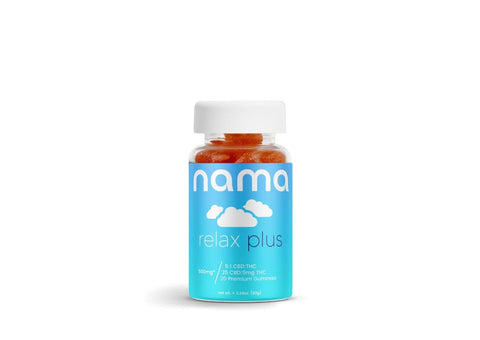
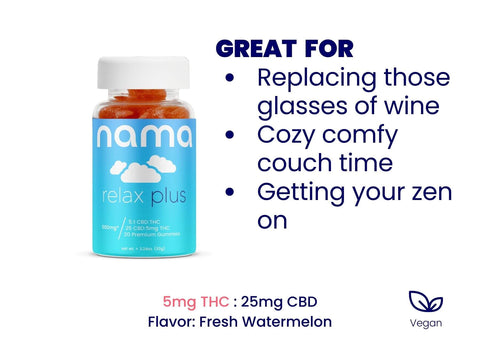
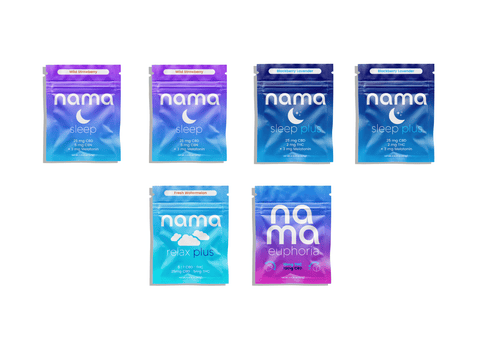
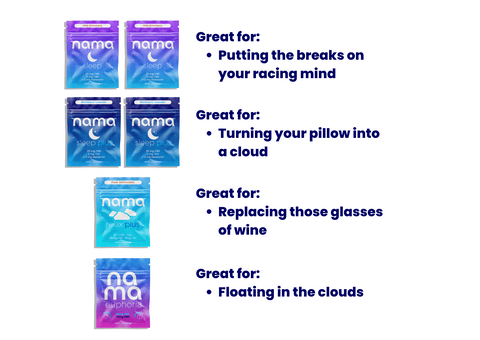
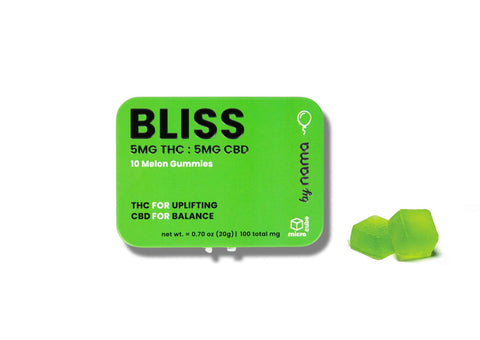
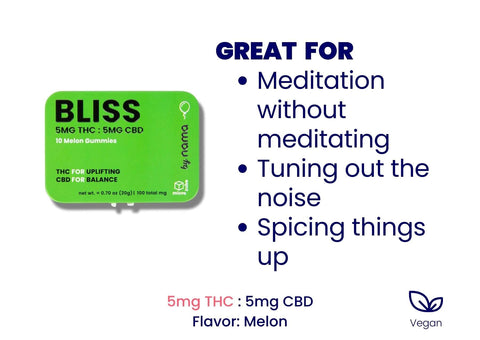
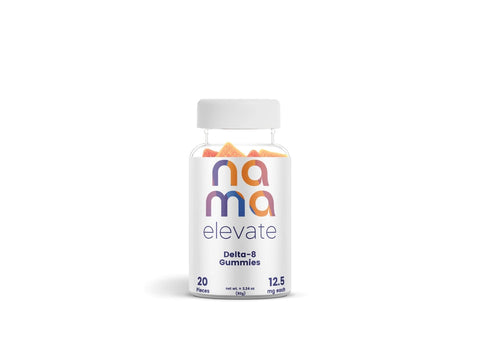
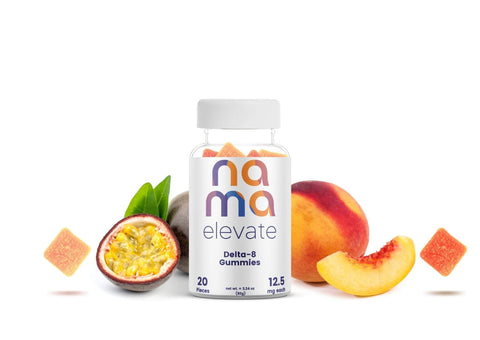
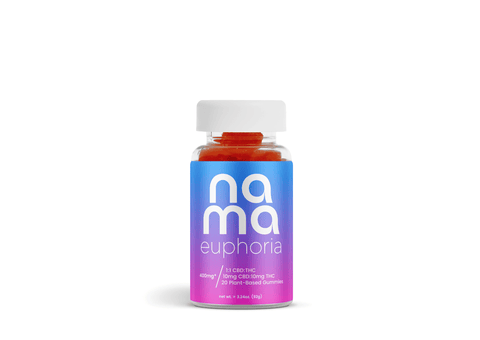
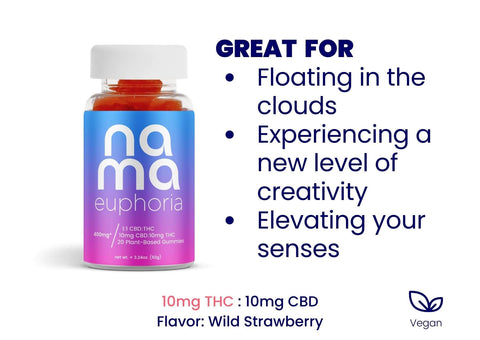
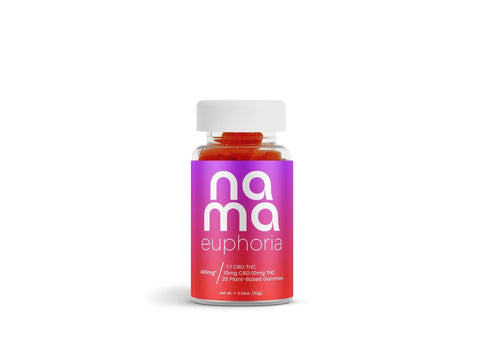
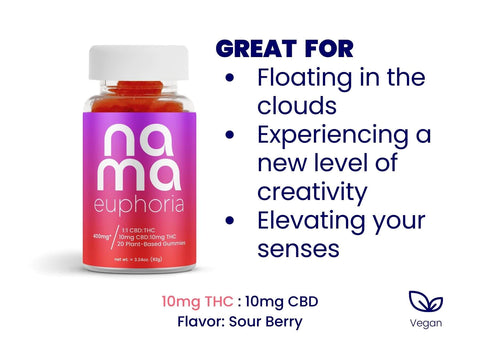









![Buzz Drops™ [THC Drink Drops]](http://www.namacbd.com/cdn/shop/files/nama_thc_buzz_drops.png?v=1711412866&width=480)
![Buzz Drops™ [THC Drink Drops]](http://www.namacbd.com/cdn/shop/files/buzz-drop-wine-comparison.png?v=1736882023&width=480)



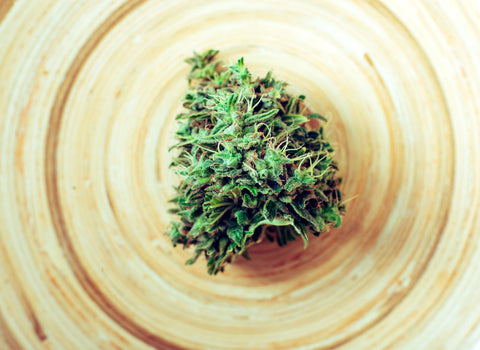


Comments (0)
There are no comments for this article. Be the first one to leave a message!